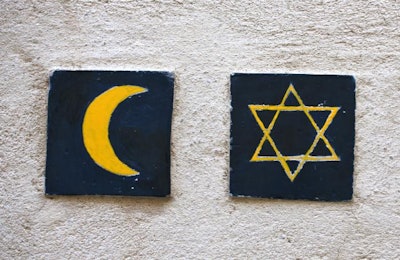
While the cell-cultured meat sector is still in the early stages and does not have products available to U.S. consumers, thought has already been put into whether such products can be certified as halal or kosher.
During the Good Food Conference in Berkeley, California, food experts from the Islamic and Jewish communities on September 6 spoke on the manner: Muhammad Munir Chaudry, PhD, president and CEO of Islamic Food and Nutrition Council of America; and Rabbi Gavriel Price, representing the Orthodox Union.
Extracting of the cells
Because cell-cultured foods, also known as laboratory-grown meat, are created after a cell is extracted from a living animal such as a chicken or a turkey, the extraction process is very important.
Both speakers said that of key importance is whether the animal from which those cells were derived is dead or alive. In both cases, the animal cannot be living, and its slaughter must have been done in a manner that is considered kosher or halal.
“We have a prohibition that you cannot eat an animal that is alive,” Price said. “You can’t take a limb from an animal that is still alive. That is totally prohibited. We would apply that idea to taking a cell or taking a biopsy from a live animal. We wouldn’t certify that product.”
Chaudry added: “we respect the life of the animal,” and with that in mind, Islamic leaders would not approve such a product when the biopsy is done on a living animal to extract the tissue. He also said that the cells must be taken from animals that were slaughtered in a manner that is consistent with halal processes.
Chaudry also said the cells would also have to be taken from a body part that, if the animal were used for traditional meat production, would be halal-approved. For instance, cells from blood or tissues that would be discarded in the animal slaughter process would not be permitted.
External ingredients
Even if the cells used to make the final product gain halal or kosher approval, there could be other ingredients that may not qualify it for either certification.
“We have to be convinced that it is clean, that it is acceptable, and that there is nothing hiding in it,” said Chaudry.
Price, who serves on the Orthodox Union committee that approves ingredients, agreed, citing one example that the Orthodox Union does not approve of the mixing of meat and dairy foods. He also said all flavors must be kosher approved.
How the foods are processed
How a food “is constructed” is another key consideration for halal certification. According to Islamic beliefs, Chaudry said, there cannot be too much intervention in the preparation of food.
For the Jewish community, the processing of the food is particular importance. This applies to the equipment at the processing plant.
“Kosher also needs to reflect the status of the equipment, so the equipment that’s used has to be dedicated to the kosher process,” Price said.


















